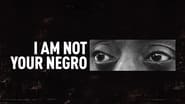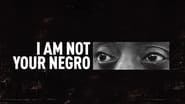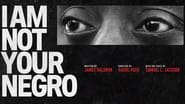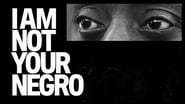Jon Parks
Firstly, Sam Jackson; WOW I didn't even recognize your voice-over work.As a child NOT living in the US during this horrible historic times, I was saddened and shocked with some of the realities that many beautiful innocent African Americans were force to face.I didn't know James Baldwin going into this viewing, but WOW, what a great orator, thinking and philosopher. His analysis and opinions should be standard reading. Partly because of his 'message' but mostly because he deserve the attention and respect of ALL peoples. His message is both historic, and current. I am sure a subjugate individual in any situation could substitute their current condition into Mr.Baldwins ideas...So, as I said I am not African American, and in fact didn't grow up in the US. In my country, we just weren't raised seeing color. And so when I watch/listen so such eloquent, beautiful and powerful commentary that doesn't stir a "one side or the other side" emotion, I end up just being "emotional", because of the content spoken, not ties to one side or the other.I would really recommend that other White people watch this document. Not because of White-guilt, as I don't believe I have done anything wrong... But I do BELIEVE that I needed to LEARN the REAL truth as it relates to historical relations with African American community.My HEART bleeds and PRAYS that the US has moved slightly forward. Barack Obama HAS TO REPRESENT at least slight progress.I do agree with a previous Reviewer that complete and utter lack of ANY sort of positivity or hope. (or at least I missed it).But again... James Baldwin is truly an American Hero in my mind.All my heart hopes things work out better over the next 5-10-15-20-25 yrs.
evanston_dad
James Baldwin began a book called "Remember This House" but died before completing it. It intended to weave together the stories of Martin Luther King Jr., Malcolm X, and Medgar Evers into a tapestry of the black American experience. In "I Am Not Your Negro," Samuel L. Jackson reads the finished portion of the manuscript, and filmmaker Raoul Peck sets the words to images from the Civil Rights Movement and the current Black Lives Matter movement. The result is a bracing and deservedly angry film that captures better than anything I've read or seen yet the reasons behind the frustration and outrage of American blacks.There's a marvelous moment in the film when a philosophy professor challenges Baldwin on the Dick Cavett Show for his attitudes, and basically holds Baldwin (and by extension black people) responsible for the continuing racial divide. His message seems to be "you're the one making an issue out of this, not me." Baldwin's take down of him in eloquent words that I won't even begin to try to replicate captures the essence of the entire film and the black struggle for equality. And Baldwin's criticism doesn't stop at racial issues. He also denounces American popular and material culture in general, accusing Americans of letting consumerism anesthetize them into a false sense of happiness and contentment that allows them to ignore all that is wrong with the American way of life.This is a movie that made me furious at America for continuing to stick its head up its ass when it comes to the subject of race. Watching Baldwin's heartfelt distress over the Civil Rights Movement juxtaposed to recent images from the news made it crystal clear that America has not progressed as much as it would like to think it has. Grade: A
851222
Greetings from Lithuania.As the one who doesn't live in America and has nothing to do with the events shown here, i can only say that i did enjoyed this documentary "I Am Not Your Negro" (2016). There were some truly important and hardly seen documentary videos about the past in the USA, some footage showing well known people. "I Am Not Your Negro" is narrated by Samuel L. Jackson who uses his voice to tell words of James Baldwin - an activist of which i have never heard before. It also mainly focuses about his thoughts and relationships with Malcolm X, Martin Luther King Jr and Medgar Evers. His thoughts were insightful and interesting to hear.Overall, is a well made and important documentary, but it didn't involved me as much as i kinda expected it to have. All in all this is a definitely a not bad documentary to see it once.
alexdeleonfilm
I'm not your Negro" directed by Haitian Raoul Peck, is based on the unfinished writing of James Baldwin on the lives and deaths of three prominent figures of the Civil Rights Movement of the sixties, Martin Luther King, Malcolm X, and Medgar Evers, all, three of whom were assassinated before the reached the age of forty. Before the main title we see a clip of Baldwin on the Dick Cavett talk show, which will be reprised several,times during the film. Baldwin is himself the person most seen throughout, the star of the film, so to speak -- but others include Malcolm X, Luther King and Evers, plus Robert Kennedy who was also assassinated within the same time frame, and, of course, Sidney Poitier and Harry Belafonte. A long sequence from Stanley Kramer's "The Defiant Ones" shows Tony Curtis and Poitier on the lam but bound together by prison chains, forced to cooperate in order to survive even though they hate each other -- the best clip in Peck's film. Many other clips were I thought far less irrelevant to director Peck's intended massaging -- basically, it seems, intended to make white viewers feel guilty. We see Baldwin addressing an enthusiastic crowd at Cambridge in England and a number of other similar scenes spaced out throughout the picture as he becomes an international celebrity. There is much graphic footage of violent police brutality against black demonstrators with Baldwin's commentary heard over --and hateful white demonstrations against "niggers" right up to the present day -- Ferguson, etc., but randomly interspersed. The overall tone of the film is quite bleak delivering the message that it is up to white America to change their indifferent attitude on race relations if they are ever to improve to the point where negroes are totally accepted and integrated fully into the society, while not holding out much hope that this will ever be achieved. The only slight ray of Hope is a flash of Black president Obama and his wife, after we see Baldwin wryly saying that, within another forty years a black man might become president "If we behave ourselves" -- oddly enough it was just exactly forty years later that Obama was elected. Peck makes extensive use of film clips from Hollywood movies (Dori Day, etc.) meant to demonstrate the complacency of White America and their lack of concern for the plight of black people. John Wayne is shown in an extended clip from Stagecoach shooting down Indians right and left. References to the Wounded Knee massacre and other atrocities against native Americans are used to imply that the Negroes who were raised as children to root for John Wayne are actually victims just like the Indians and should have been identifying with the Indians not the cowboys. The picture is divided into sections with chapter like headings on a Horizontally split black and white screen as a visual metaphor for the black white racial divide. In between poetic visual sequences not really related to the main line of the narration are inserted for some kind of effect which I found pointless and distracting filler. J. Edgar Hoover, notorious head of the FBI puts Baldwin on a dangerous persons list to be watched and underlines his homosexuality because of his outspoken anti-Racism. However, Baldwin was not nearly as radical as some of his contemporaries. He disavows the Black Panthers on the grounds that their ideology which demonizes all white people, is simply untrue. Not all white people are devils. He also refuses to identify with the NAACP movement on the grounds that it tends to promote divisive class distinctions in the black community. in sum, Baldwin was an independent thinker whose thought never strayed from demanding that the white community as a whole must take responsibility for their racism and deal with it honestly on their own. He lived most if his adult life as an ex-pat in France. While this film gives a detailed summary of racism and anti-racism in the sixties my feeling was that it is rather heavy handed and incoherent in a way that Baldwin himself might not have been very happy with. Moreover, rather than make me feel a sense of responsibility as a white person, it mainly served to make me realize how basically alien American black culture is to me. All in all I was disappointed in the film although I came to it with very high expectations. At the five PM screening at the Music Hall cinema in Beverly Hills there were only five viewers besides myself. The film is not packing them in. Seems to me Europeans are more interested in American race relations than well off white Americans. It was far better attended and positively reviewed at the Berlin film festival.
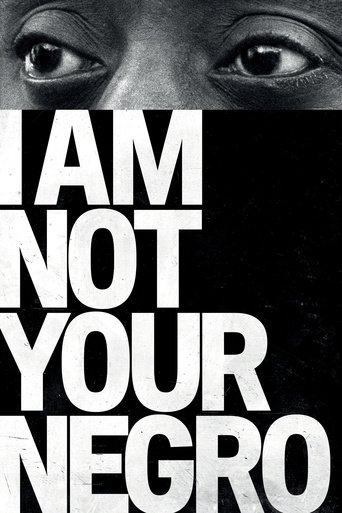




 AD
AD











